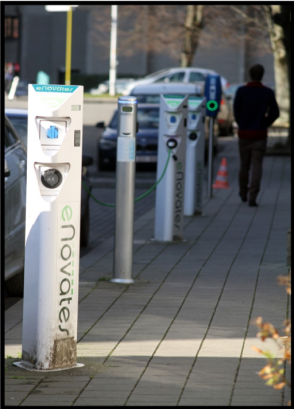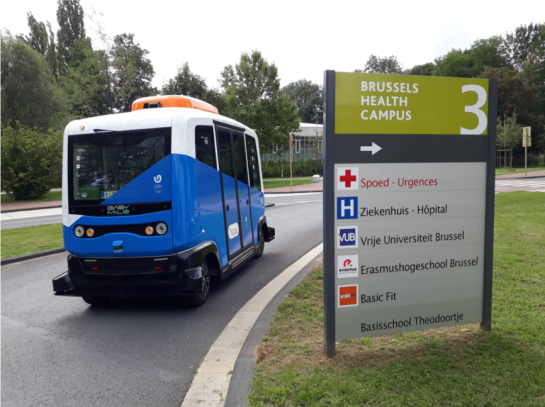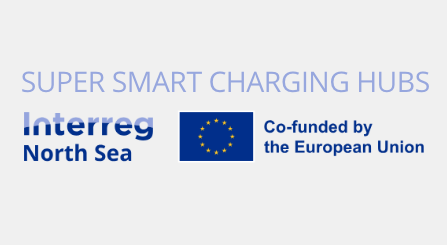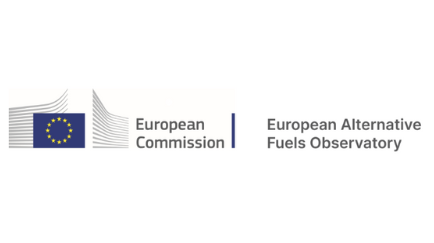MOBI has a long track record in the field of electric vehicles, which is now expanding to include research into autonomous vehicles. We are internationally recognized for our vast experience and expertise related to vehicle powertrain design, battery research, environmental assessments, socio-economic evaluations and standardization. We are also a MOBI Core Lab within Flanders Make - Driving innovation.
Socio-economic aspects
Next to the long-time tradition of more than fourty years researching technical aspects of electric vehicles, we also offer interdisciplinary expertise for the socio-economic aspects of electric vehicles.
We regularly conduct large-scale user surveys to assess the market potential of electric vehicles. The information gathered from the respondents provides a detailed insight into owner and user preferences concerning important car attributes, such as price, range or fuelling/recharging infrastructure. Based on these insights, discrete choice modelling techniques are applied to infer the market potential in the near future for electric vehicles and other car configurations.
The market simulation also allows estimating the impact of several government measures to stimulate the mass market adoption of electric vehicles, such as fiscal advantages for buyers.
Charging infrastructure

Hand in hand with the broader adoption of electric vehicles goes the roll-out strategy of charging infrastructure. One of the barriers for adoption of electric vehicles is the need for charging infrastructure to refill with clean, renewable electric energy.
Our expertise in this field is plentiful: hands-on experience with charging points and accompanying charging data analytics, location modelling for roll-out strategy of charging infrastructure, technological development of charging technology and its standardization.
MOBI has deployed several types of charging stations at its facility, monitoring and analyzing their usage characteristics.
On a larger scale, it is necessary to define strategies for the roll-out of the charging infrastructure. We combine GIS-analysis and location science techniques to develop optimal roll-out strategies in combination with the market potential forecast.
Furthermore, with the maturation of the market, also the service quality of the charging point operations is increasingly more important. We have developed the Charging Infrastructure Service (CIS) Diagnostic to evaluate the user’s experience with charging infrastructure service operators.
Driver behaviour facing the use of infrastructures is analyzed to tackle the range anxiety issue. We are also involved in research programs in the field of wireless power transfer for electric vehicles.
Furthermore, we have been active for over 20 years in the global and European standardization of electric vehicle charging infrastructure, through the secretariat of IEC TC69 and Cenelec TC69X technical committees.
Expert tools
Our holistic and multidisciplinary approach of e-mobility encompasses expert tools to assess the Total Cost of Ownership of a fleet, Environmental Life Cycle Assessment Analyses, user preference analyses comparing electric and hybrid vehicles with other alternative and conventional vehicles.
Business modelling
Not all innovations are commercially viable. All stakeholders involved in the value chain and the wider business ecosystem surrounding the innovation must see a valuable proposition within the innovation. Our business modelling team assesses the business potential and the challenges of specific innovations. Typical steps in assessing innovations include:
- Sketching the business ecosystem and assessing its expected evolution, i.e. identifying the different stakeholders involved in the product’s value chain and the wider innovation ecosystem.
- Assessing the role of standards in the deployment of innovations
- Identifying the performance criteria of the users, i.e. those elements that are determining in the decision-making process of the users. And judging whether the innovation offers a significant improvement on these criteria.
- Sketching the project roll-out and roadmaps, to assess project costs and complexity and identify possible hurdles in the implementation.
Often the business modelling activities are part of a wider project, in which technical and other (legal, infrastructural, business, …) aspects of innovations are mapped out.
Clean and energy-efficient vehicles
The assessment, design and optimisation of electric powertrains represent a major pillar of MOBI’s expertise in the field of clean and energy-efficient vehicles. Our dedicated test infrastructure and simulation platforms have proven to be essential assets in various collaborative projects with the industry and are reinforcing our leading position in the field of electromobility.
Design and optimisation
Thanks to our comprehensive expertise, we perform cutting-edge design and optimization for a large spectrum of technologies for electric vehicles. We have developed various highly advanced and innovative control algorithms, testing protocols and dynamic models for improving control and energy strategies, and for boosting the efficiency of a design under a wide variety of load conditions. Furthermore, thanks to a highly-advanced simulation platform we can perform detailed analysis and control of new electric powertrain concepts and their dynamic behaviour. Our simulation tools facilitate the modelling of electric propulsion systems in a wide variety of applications.
Vehicle Digital Twin Tool
We have in-house infrastructure to test electric vehicles. Our infrastructure consists of on-road measurement equipment for dynamic vehicle monitoring, as well as a vehicle dyno-roller test bench. Additionally, we have some self-build electric vehicles and a number of production electric and hybrid vehicles.
We use our infrastructure to produce digital twin models of numerous vehicle components and fleets. We perform vehicle modeling, design specification & optimization, codesign methodologies, virtual tests and HiL testing. Furthermore, we work on energy management systems (EMS) for connected plug-in, hybrid, electric vehicles and fleets. We apply standard, optimization-based and prediction-based EMS to enable next generation controllers. We use our highly advanced EMS approaches within a multi-level strategy framework, for the full electrification of bus lines in cities, eco-driving, eco-charging and eco-comfort for all end users. Find out all about our test infrastructure here.
AUTONOMOUS VEHICLES
The electrification of vehicles currently develops simultaneously with the automation of vehicles. We lead a strategic research program on autonomous mobility and logistics. We study user acceptance of the technology in combination with behavioural change. We use an agent-based simulation model to assess the effects of automation on the transport system and evaluate the multiple impacts on society, from a multi-stakeholder and multi-criteria perspective. Our expertise is both theoretical (model development) and empirical, with our own shuttle project on the university campus.

Projects

|

|

|

|


